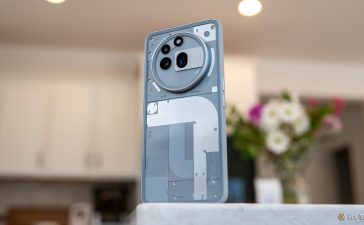9:30 – 9:50 Coffee, Pastries, & Mingling
10:00 – 10:50 Keynote – Michael McCready
The Evolution of XR Research at Lethbridge College
Presenter: Michael McCready
A holistic look at how and why XR research has grown to a $3.5M+ initiative at Lethbridge College. Observations for repeatable success will be shared.
11:00 – 11:50 Breakout Session 1
Deep Dive in VR Filming: Camera, Software, and Platform
Presenters: Hugh Hou, Keeley Turner
Location: Charles Hunter
VR filming requires three main components: a camera to capture the 360-degree and 180-degree environment, software to stitch the footage together, and a platform to host and view the content. Popular cameras include the Canon EOS R5C with dual fisheye lens, Insta360 Pro 2 and Titan and Insta360 Pro. Software options range from free to professional, such as Adobe Premiere Pro and Mistika VR. Platforms like YouTubeVR, Meta Quest and Pico VR content, while specialized platforms like Meta and SteamVR offer a more immersive experience. Understanding these components is key to creating immersive VR content.
Construction as Builds, Modeling & Layout
Presenters: Kevin Steed, Roy Steed, Charles Steed
Location: Shooting Star
KRS Electric Presentation will consist of the following: A brief history of our company, what brought us to start integrating the equipment and software we use now, a power point slide of projects we have done using our software and equipment, how it has helped us in our company to streamline processes and efficiency, and different applications of how we have used our equipment. The Presentation will be based on using the following equipment & software; Trimble MR Hololens glasses, Trimble lidar scanner, Trimble total station, AutoCAD, 3D Civil, Real Works by Trimble, and Solid Works.
Online VR Labs at Utah Tech
Presenters: Jordan Ellsworth, Reese Rasmussen
Location: Vermilion Cliffs
Online learning has grown rapidly in recent years. Lab courses, however, have largely remained on-campus due to the nature of the lab equipment. In this presentation, Utah Tech Online will share their experience in partnering with Computer Science and Animation students to change that by creating online VR labs.
A Combination of Eye Tracking Technology and Virtual Reality on Consumer Behaviors and Visual Branding Research
Presenter: Dr. Lijie Zhou
Location: Yankee Meadows
Using eye tracking technology (a neuroscientific approach), visual communication researchers and designers are able to detect viewers’ visual attentions and unique eye movements toward certain visual elements. In this presentation, Dr. Lijie Zhou will demonstrate the use of eye tracker in virtual reality environments (VIVE Pro Eye) and screen-based eye tracker (Tobii X2-120) in consumer behavior studies. The presentation will also cover the visual stimulus development, eye tracking data collection and gaze data analysis by using Tobii Pro Lab and different 360 cameras.
VR Studio Tour
Location: Meet by the Information desk in the Hunter Alumni Center
Come and see SUU’s brand new VR/AR Innovation Studio, where attendees can learn about and try various XR technologies, such as the Valve Index, Hololens, Meta Quest 2, and Meta Quest Pro. There will be software demonstrations of 3D Oragnon, Gravity Sketch, and BodySwaps. The Studio Space will be open throughout the semester, and is a valuable tool for teaching, developing, and learning AR and VR, as well as meeting like-minded individuals.
12:00 – 12:50 Breakout Session 2
Meta Ethics: Ethical Practices in Virtual Reality
Presenters: Kat Calvo, Adam Evans
Location: Charles Hunter
Translation and enforcement of a meta ethical concept within any XR realm will be essential to maintaining the good and order of a potentially lawless and limitless realm. Scholars and practitioners alike must unite to help define the rules and guidelines in order to prevent the disruption of civic values and avoid meta ethical chaos. While normative ethics addresses such questions as “What should I do?”, evaluating specific practices and principles of action, meta-ethics addresses questions such as “What is goodness?” and “How can we tell what is good from what is bad?”, seeking to understand the assumptions underlying normative theories. Another distinction often made is that normative ethics involves first-order or substantive questions; meta-ethics involves second-order or formal questions. Join The Folke Institute’s Adam Evans, PhD and Kat Yamamoto-Calvo as they talk about meta-ethics within the context of a Virtual Reality Space, the influential role cognitive bias plays, and practices for creators and users to promote inclusion and belonging.
The Development of a Proof-of-Concept Virtual Reality Application for Functional Kinesiology
Presenters: Cody Bremner, Aundrea Frahm, Ben Kirkby, William Allen, Gracia Assaka, Paul Eberhardt, Madison Jones, Jacob Southwick
Location: Shooting Star
Augmented and virtual reality (AR/VR) are promising tools with limitless applications. Of particular interest is the emergence of VR in higher education settings to enhance student learning. We believe using VR may aide in delivering content in an online Functional Kinesiology course. We formed a collaborative team to internally develop a VR application from existing assets. Our presentation discusses the process by which our collaborative team is undertaking the development of a proof-of-concept application.
Enhancing Human Anatomy Education with Virtual Reality: A Collaborative Pilot Program at Southern Utah University
Presenters: Sarah Brock, Matt Nickerson
Location: Yankee Meadows
The study of human anatomy is a fundamental aspect of medical and health science education, but traditional methods of teaching anatomy, such as studying two-dimensional images or plastic 3D models, can be limited in their effectiveness. Virtual reality (VR) technology offers a new way to engage students in the study of human anatomy by immersing them in a three-dimensional environment, allowing them to explore the human body in a more interactive and intuitive way. We will discuss the preliminary results of a collaborative pilot program with the Gerald R. Sherratt Library at Southern Utah University to implement VR assignments for human anatomy students using 3D Organon Anatomy software and Oculus Quest 2 headsets.
1:00 – 1:50 Lunch
2:00 – 2:50 Breakout Session 3
Unlocking the Potential of Mixxed Reality and AI for Transformative Medical Simulation Training
Presenters: Ryan Haglund, Fred Armstrong, DP Harris
Location: Charles Hunter
Loma Linda has been working with students and faculty to create immersive experiences that use a range of different XR technologies. Our goal has been to create novel experiences with the intent to make learning more memorable than traditional methods. XR tech offers a safe environment to practice complex procedures without risking harm to patients or students.
Then / Now / Future: VR Services at the Marriott Library
Presenters: Greg Hatch, Tony Sams, TJ Ferrill
Location: Shooting Star
Learn from VR practitioners from the University of Utah’s Marriott Library about the design and implementation of a suite of VR service options, including: VR labs, equipment checkout, research, and curricular activities. Now 8 years in operation, the Library’s VR services have been through several configurations, deployments, and projects. Participants will come away with an understanding of best practices, opportunities, and what challenges to expect when building VR equipment workflows.
Infinadeck – unleashing the power of dynamic presence within virtual reality
Presenter: Phil Martin
Location: Vermilion Cliffs
Infinadeck is leading the drive to bring true “dynamic presence” into our digital lives. By creating significantly heightened perception of combined Embodiment and Immersion, the critical components of this engaged presence, Infinadeck’s multidirectional natural-gait unlimited movement platform delivers inherently more evocative engagement and more effective knowledge assimilation. Infinadeck has built the most effective, flexible movement platform available to harness our innate spatial cognition capabilities to more dynamically and powerfully engage with any immersive experiential environment. This presentation will discuss the opportunity that the deeper engagement and the more potent embedding of the memory connected to dynamic presence in digital experiences offers in the university setting.
Leveraging Augmented & Virtual Reality to Inspire STEM and CTE Pathways
Presenter: Zspace
Location: Yankee Meadows
Discover how school districts, career centers, and community colleges are using augmented and virtual reality (AR/VR) to support STEM and CTE pathways. In this session, attendees will learn how students are using AR/VR to sharpen technical skills in a range of programs from STEM to Health Sciences through experiential learning experiences that are aligned to existing K-12 curriculum as well as industry certifications.
- Understand the AR, VR, and Mixed Reality landscape
- Get examples of student-centered activities that supplement and align with existing curriculum
- Identify funding sources for new technology
3:00 – 3:50 Breakout Session 4
Developing VR Training Applications
Presenter: Michael McCready
Location: Charles Hunter
This session will explore the development of three VR training applications including the rationale for these experiences being developed in VR, challenges, and key findings. A comparison between bespoke and off-the-shelf VR applications will be included.
Embedding XR in the Health Sciences Curriculum: Case Studies from the University of Utah
Presenters: Brandon Patterson, Mark Howell, Willis Holle
Location: Shooting Star
This session will explore use cases of XR in health sciences at the University of Utah. From anatomy education to data collection from simulation software, XR has transformed how we teach in medicine, dentistry, nursing, pharmacy and health. The session will tell the story of XR becoming part of the health sciences curriculum with integration as an experiential learning activity with students and patient populations.
Asymmetric VR Game Genres and Design Framework
Presenters: Derek Hansen, Wes Colemere
Location: Vermilion Cliffs
Asymmetric VR games (AVR games) include one or more players using a VR headset and one or more using a different modality (e.g., mobile phone, desktop). Attendees of this design workshop will learn about an AVR game design framework, developed by BYU’s Mixed Reality Lab. They will then use it to collaboratively design an AVR game concept.
Leveraging Augmented & Virtual Reality to Inspire STEM and CTE Pathways
Presenter: Zspace
Location: Yankee Meadows
Discover how school districts, career centers, and community colleges are using augmented and virtual reality (AR/VR) to support STEM and CTE pathways. In this session, attendees will learn how students are using AR/VR to sharpen technical skills in a range of programs from STEM to Health Sciences through experiential learning experiences that are aligned to existing K-12 curriculum as well as industry certifications.
- Understand the AR, VR, and Mixed Reality landscape
- Get examples of student-centered activities that supplement and align with existing curriculum
- Identify funding sources for new technology
VR Studio Tour
Location: Meet by the Information desk in the Hunter Alumni Center
Come and see SUU’s brand new VR/AR Innovation Studio, where attendees can learn about and try various XR technologies, such as the Valve Index, Hololens, Meta Quest 2, and Meta Quest Pro. There will be software demonstrations of 3D Oragnon, Gravity Sketch, and BodySwaps. The Studio Space will be open throughout the semester, and is a valuable tool for teaching, developing, and learning AR and VR, as well as meeting like-minded individuals.
4:00 – 4:50 Plenary Speakers -Hugh Hou & Keeley Turner
Filmmaking in the Metaverse Utilizing AI, NeRF, and VR to Fully Immerse Your Audience!
Presenters: Hugh Hou, Keeley Turner
Learn how to become a Metaverse creator as an artist or filmmaker without writing any code while using the power of social media! Hugh and Keeley will share their experience in navigating the world of XR filmmaking and how to approach Metaverse from storytelling perspective and how they combine new frontier technology like AI art generation, insta-NeRF into immersive content creation. Distribution is everything for artists and creators. They will also cover tips and tricks on how to distribute content in the Metaverse ecosystem.
5:00 – 5:30 Last Networking & Mingling











